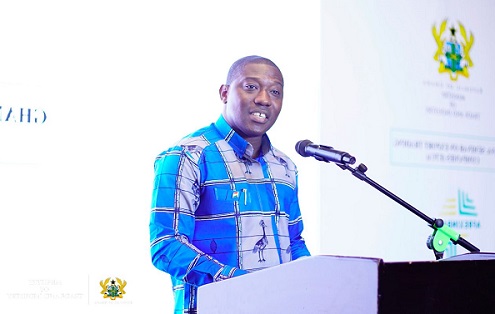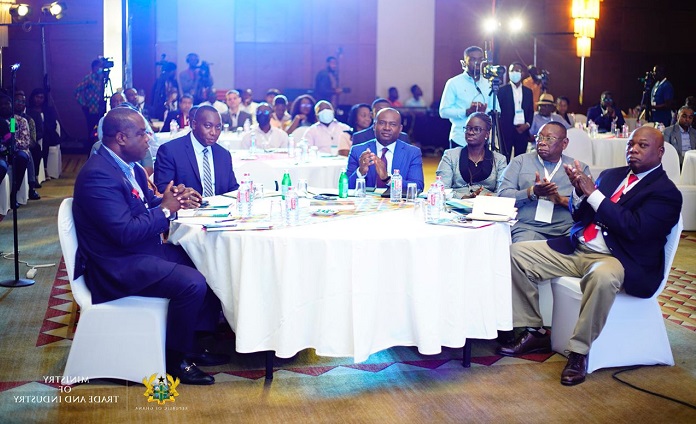
The Ministry of Trade and Industry is implementing a National Export Development Strategy, aimed at increasing Ghana’s non-traditional export revenue to US$25 billion by 2029.
In this regard, 17 priority products, ranging from automobiles and vehicles, industrial salt and starch, sugar and processed oil seeds to aluminium, iron and steel and pharmaceutical products have been identified for export under the strategy.

According to a Deputy Minister of Trade and Industry, Herbert Krapah, the plan was being rolled out alongside the Export Expansion Programme expected to assist an initial 200 private firms in enhancing their productive capacity for export to the African market.
The Deputy Minister announced these at a seminar organisedin Accra, yesterday, by the African Export-Import Bank (Afreximbank) and Ministry of Trade and Industry to sensitise African countries to the role of Export Trading Companies (ETCs) in diversifying African exports and promoting industrialisation in Africa.
The event afforded participants the opportunity to discuss the role of ETCs in facilitating intra-African trade, under the AfCFTA, as well as trade outside Africa and how ETCs were operated, supported and regulated by government and other agencies.
Mr Krapah explained that the programme formed part of efforts to reposition Ghana to take advantage of the African Continental Free Trade Area (AfCFTA), to maximise revenue generation and build a competitive economy.
The Deputy Minister noted that Ghana and 53 other African countries have signed the AfCFTA Agreement while 46 have submitted their tariff offers, including four Customs Unions.
He said phase two negotiations on Investment, Intellectual Property Rights, Competition Policy, Women and Youth in Trade and Digital Trade were ongoing.
Mr Krapah said the commencement of actual trading between some countries, including Ghana in the coming weeks required the establishment and investments in ETCs, which have the capacity to produce and export.
“ETCs will help us to leave no one behind in the regional value chain. SMEs, young entrepreneurs, startups, light manufacturers and big industry will be able to partake in the AfCFTA,’” he noted.
He stated that by providing export and import services, warehousing, transportation, finance, insurance, risk management and market intelligence, free trade will thrive.
Mr Krapah said the participation of Ghanaian businesses in the AfCFTA, was an essential government vision of creating shared prosperity, advancing economic competitiveness and strengthening institutions.
In view of the present global economy, the Deputy Minister reiterated the need for Ghana and other African countries to pursue industrialisation and build self-reliant economies.
“As government institutions, exporters, financing firms, manufacturers, SMEs and everyone else in the export ecosystem, we should all be energised to set up Ghanaian owned or partnered (ETCs) both domestically and across Africa. Africa’s industrial revolution must be realised at all cost,” he stated.
Dr Gainmore Zanamwe, Senior Manager of Trade Facilitation, Afreximbank, said the lack of access to market intelligence was impeding growth of ETCs in Africa.
He said this resulted in the inability of member states to know what other countries were producing and needed.
Dr Zanamwe noted that ETCs were critical in assisting the growth of smallholder farmers and traders through the aggregation and bulk purchase of goods produced.
BY CLAUDE NYARKO ADAMS







